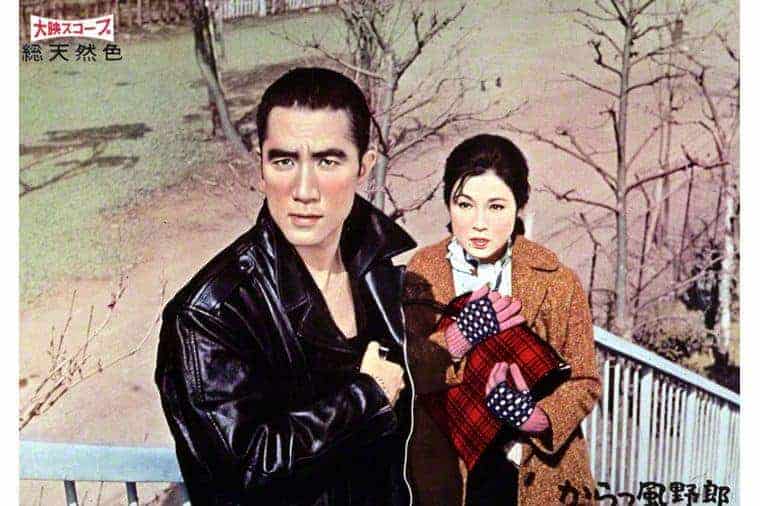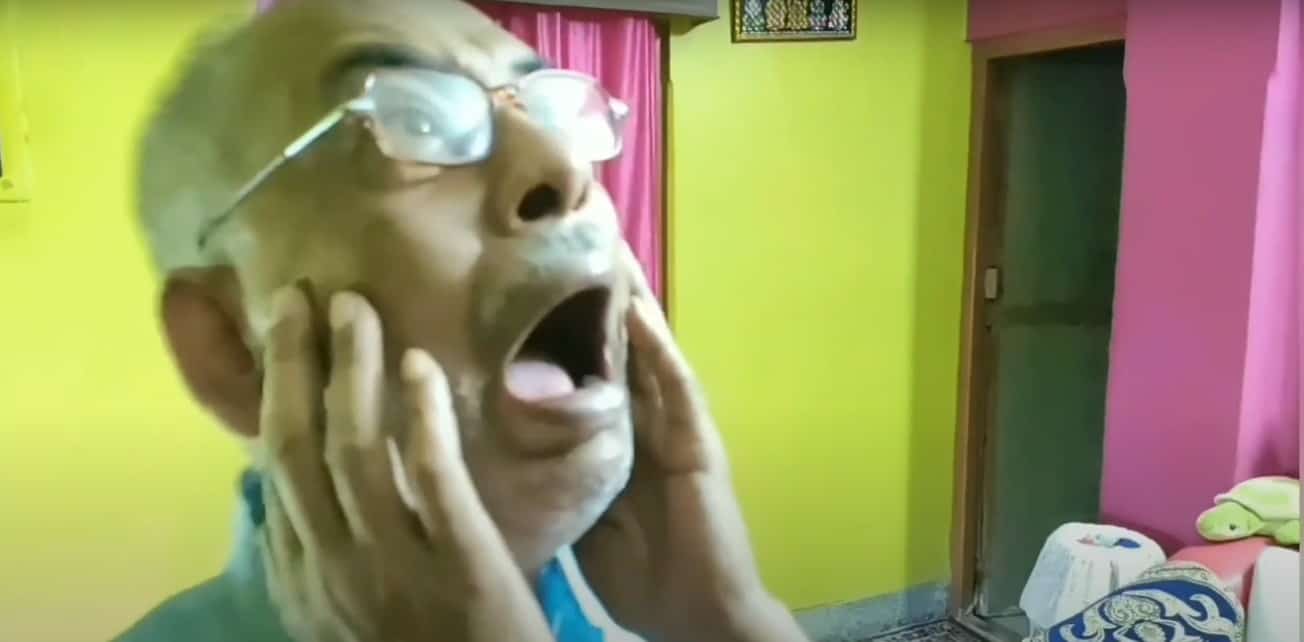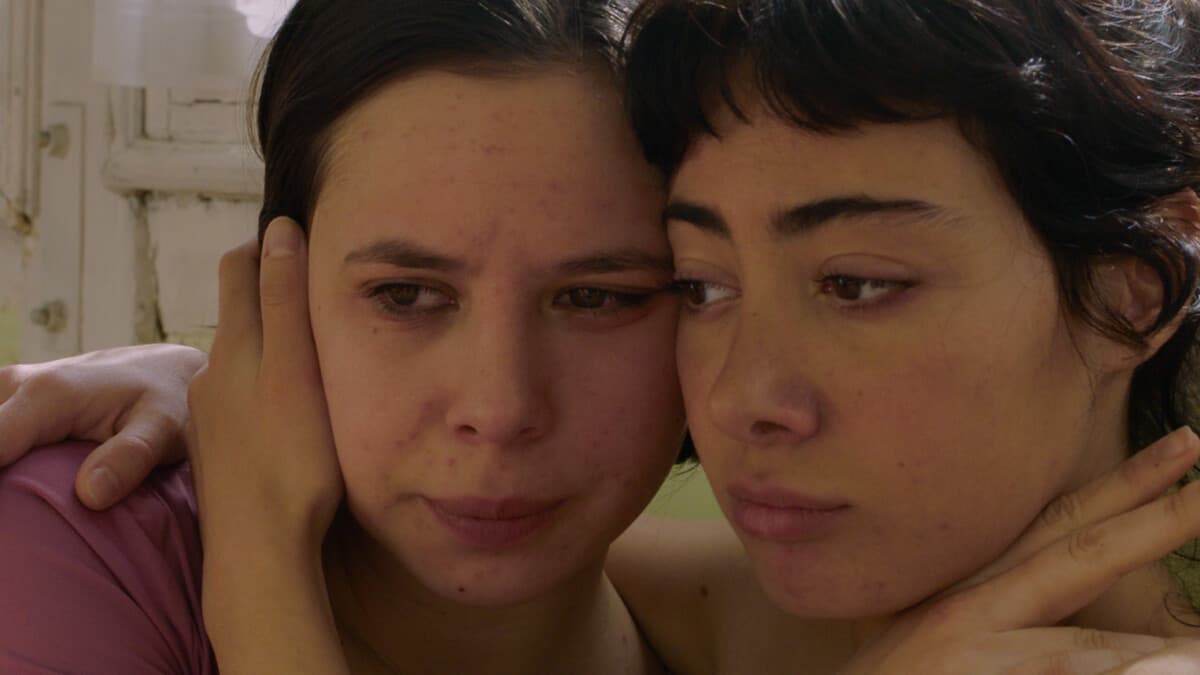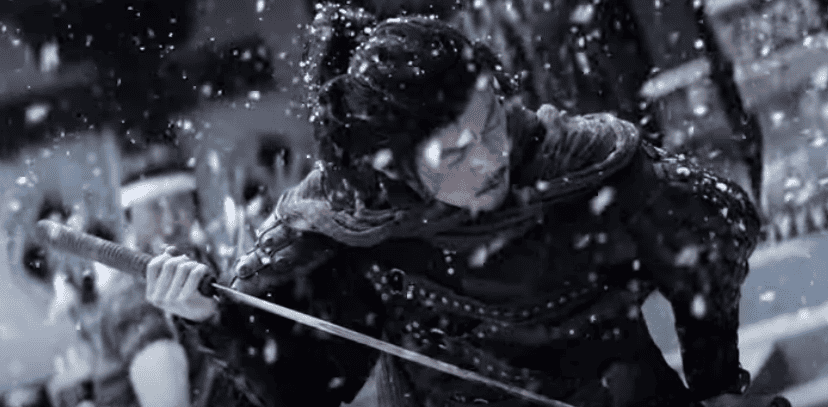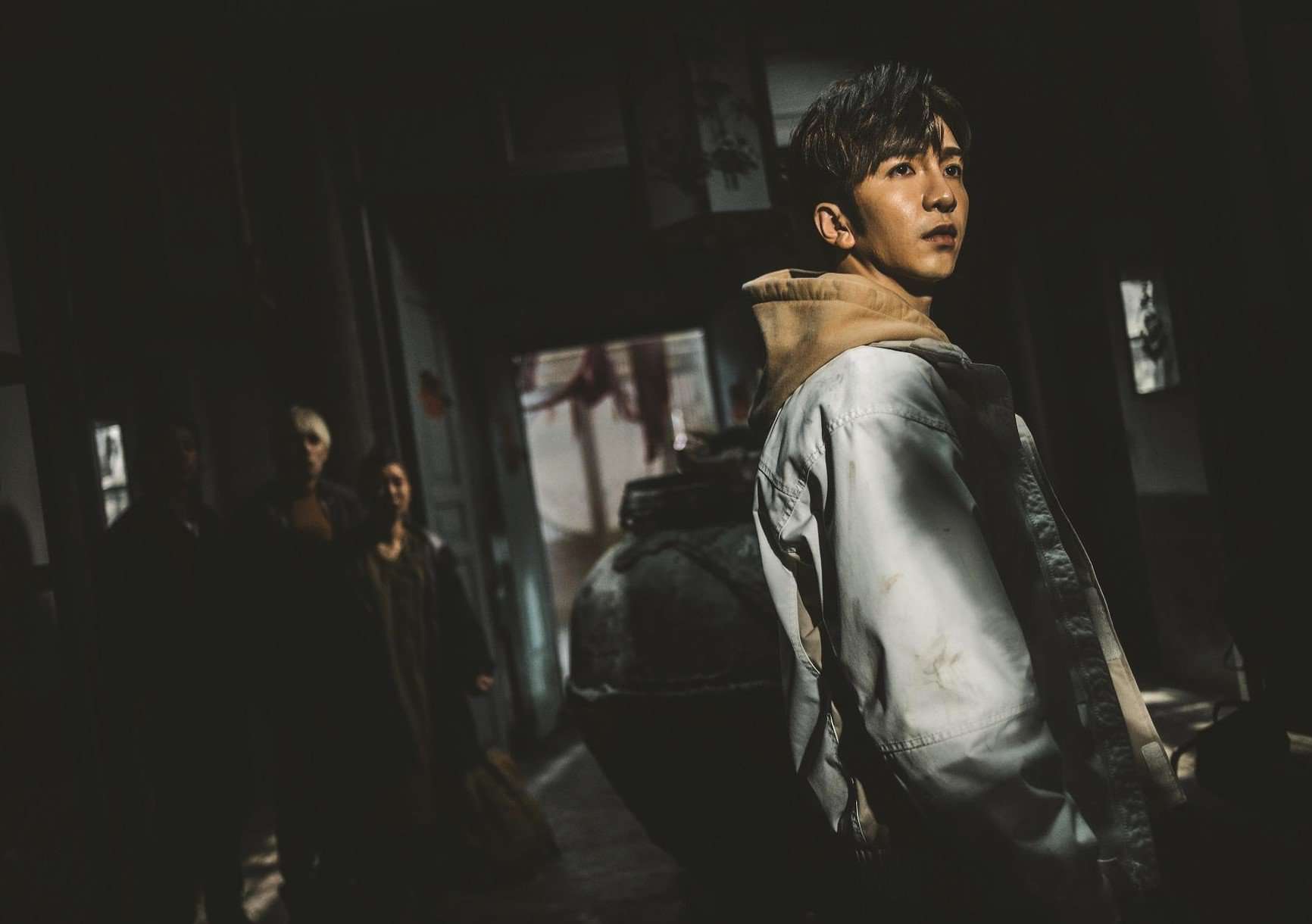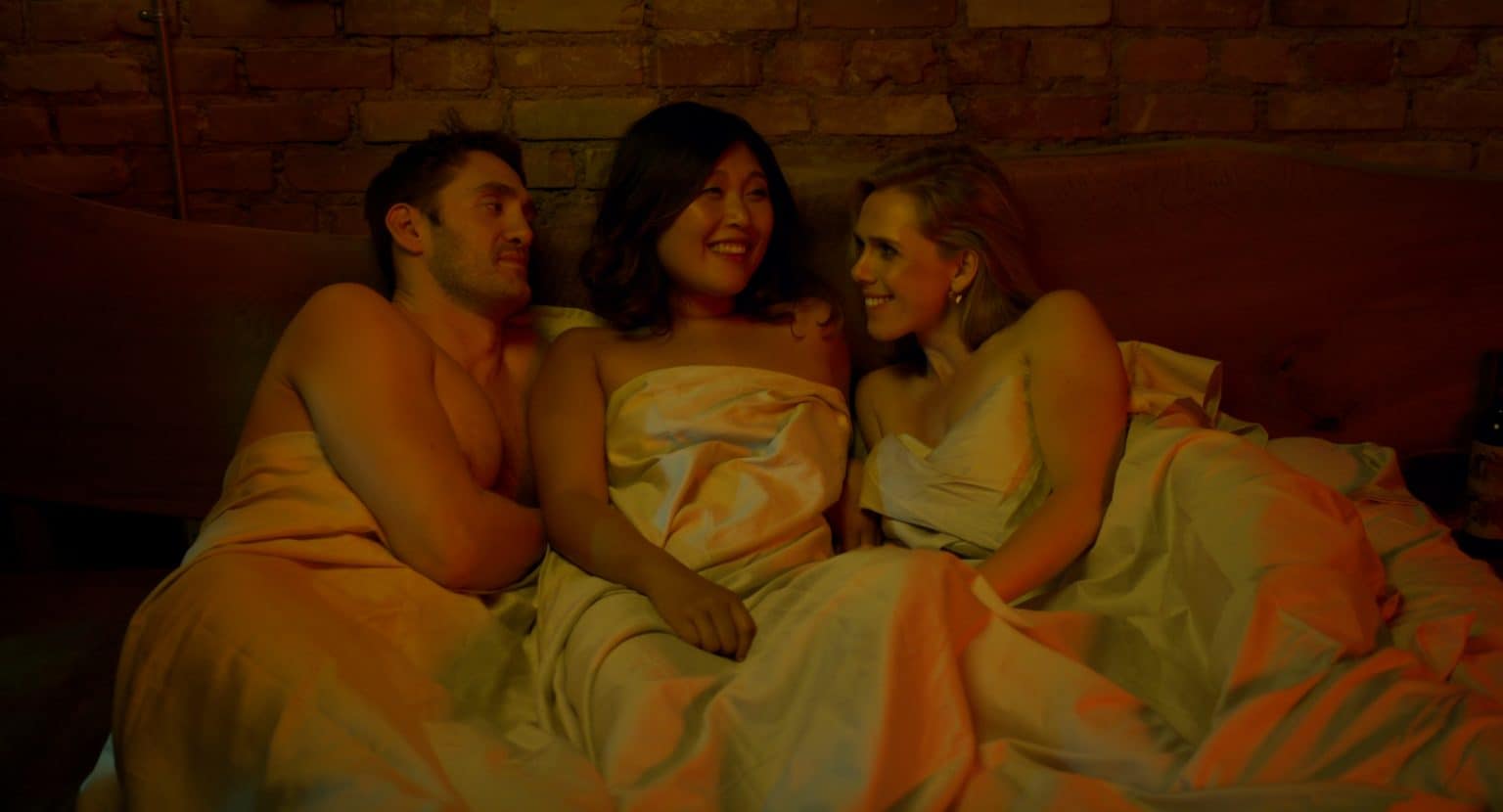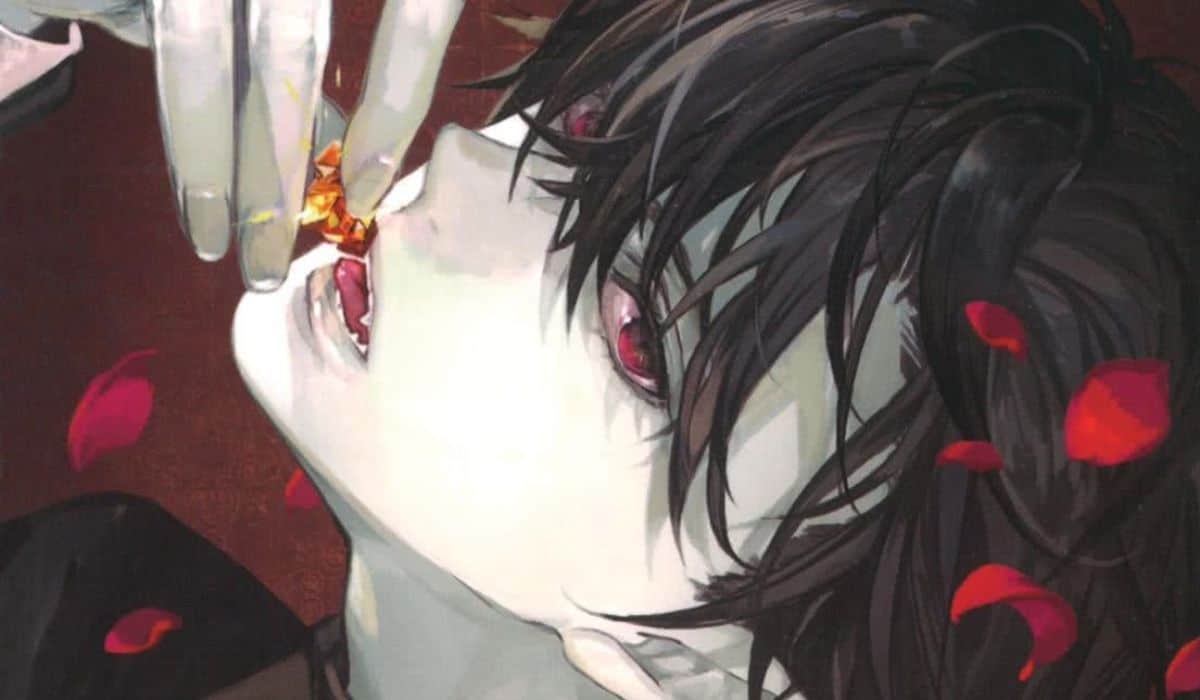Probably Yukio Mishima's best known acting part, “Afraid to Die (aka Man of the Biting Wind) is a lesser known Yakuza film, that eventually led the Nobel Prize nominee to write the novella “Star”, based on his experiences starring in the movie. On the occasion of the English translation of the novella, Japan Society is screening the film Friday, May 10.

The film revolves around Takeo Asahina, who is released from prison as the story begins, after serving a few years for stabbing a sub-boss of a rival Yakuza clan, Sagara. With a murder attempt aimed at him just before his release, Takeo is forced to go into hiding, ending up in an old cinema the family is running. Despite the fact that the whole Sagara gang and an asthmatic killer-for-hire are on his heels, Takeo continues his criminal endeavors with his lawyer-degree associate Aikawa, under the instructions of the clan's uncle Gohei. At the same time, he enters a rather abusive relationship with cinema counter girl Yoshie, who insists on him leaving The Life, as is the case with Aikawa's girlfriend. Eventually, a way out appears, but Takeo is too much into the crime world to leave easily, and pressure keeps mounting upon him.

Yasuzo Masumura directs a straightforward crime film that has two distinct, interconnecting aims; to highlight the inescapability of being a Yakuza and to “promote” Mishima as an actor. In that fashion, the title describes Asahina's mentality perfectly, as underneath his seemingly macho facade, fear is dominating him. This sentiment is highlighted a number of times, from the way he “escapes” during his release, pleading with the cops to help him, and to the way he reacts each time anyone comes knocking to his rundown apartment over the cinema. The inescapability is highlighted through different elements, from Asahina's comments about the relationship between Yakuza and money and the commitment everyone owes to the “family”, to the finale of the film, which provides the most eloquent and the most impressive testament to the fact.
Regarding the second aim, Mishima performs quite well as the scared/macho criminal, although the second aspect eventually takes over, particularly through his violent relationship with Yoshie, which, at the time of its screening, led Nagisa Oshima to disregard the film completely, disgusted by the indulgence of Mishima's macho fantasies (source: TimeOut London). His attitude is not without reason, as after a point, we watch Asahina slapping around Yoshie repeatedly, and her actually accepting all punishment as something natural. Different times one could say but still… This showing off also extends to a number of scenes where Mishima “presents” his bodybuilding work, which occasionally seems unnecessary.
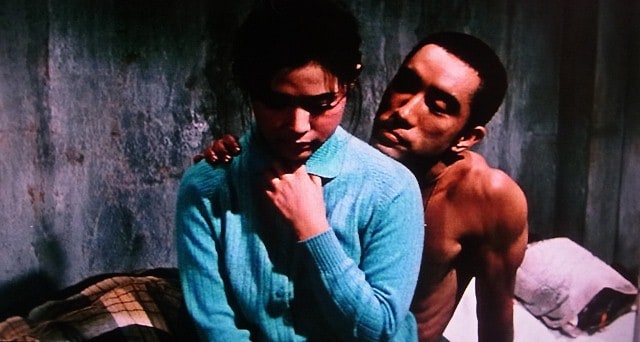
A second subplot, regarding Yoshie's communist brother and the connection between Yakuza, the capital, and police provides a political stroke to the film, although it is not explored in depth.
The acting is also on a high level, with Ayako Wakao being excellent as the victim of love and violence, Yaeko Mizutani as Asahina's ex-girlfriend giving a kind of a femme-fatale performance, particularly in the night club scenes, and Takashi Shimura adding value and dignity in his performance as the tattooed “uncle”. Eiji Funakoshi is convincing as the “educated gangster”, with his appearance and general conduct coming in complete antithesis with the leather-glad brute Asahina is.
Hiroshi Murai's cinematography is very good in portraying the setting of the “underworld”, and the psychological status of Takeo, with the night shots in the streets and the club falling under the first category, and his almost claustrophobic apartment, under the second. Tatsuji Nakashizu's editing gives a medium pace to the film, which does not always suits the narrative, but in general works relatively well.
Masumura could have focused more on the psychological status of Takeo and his fear of death (or even in the political aspect of the story) in order to add depth to the movie, but as a traditional Yakuza film “Afraid to Die” works quite well, and definitely deserves a watch, if more for its specifics that its actual context.


